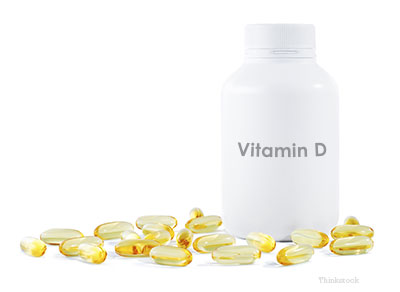What are the signs of vitamin D poisoning?
Signs of vitamin D poisoning typically start 12-36 hours after ingestion. The severity of signs depends upon the amount of Vitamin D ingested. Vomiting, diarrhea, increased drinking and urination, abdominal pain, depression, and lack of appetite are generally seen with smaller doses. Higher doses can cause elevated levels of calcium and phosphorous in the body which may result in kidney failure. In addition to the signs above, severe poisoning may also cause an increased respiratory rate, difficulty breathing, bleeding in the intestines, slow heart rate, abnormal heart rhythms, and mineralization of body tissues. Without appropriate treatment, death may occur.
Causes of Vitamin D Poisoning in Dogs
Dogs store Vitamin D in their fat and liver. Because it is not water-soluble, they are unable to excrete excess amounts in their urine.
It can take as little as a dose of 0.1 mg/kg to cause vitamin D poisoning. Thats about 0.45 mg per 10 pounds of body weight. The fatal dose is around 2 mg/kg, which equals about 9 mg in a 10-pound dog.
There are three main ways dogs can ingest dangerous amounts of Vitamin D.
When ingested in poisonous amounts, vitamin D can result in life-threatening elevations in calcium (i.e., hypercalcemia) and phosphorous (i.e., hyperphosphatemia). When this occurs, it results in soft tissue mineralization–or hardening of the tissue. This mineralization often occurs in the kidneys (renal tubules), gastrointestinal tract, aorta, and even the heart. This can result in severe acute kidney failure within just a few days. Most supplements list the amount of each vitamin using international units (IU). One IU of vitamin D3 is the equivalent of 0.025 mcg or 0.000025 mg of Vitamin D3. At doses as low as 0.1 mg/kg, we can start to see signs of vitamin D poisoning. (Rather than stress out over the math, call a professional for assistance! When in doubt, contact your veterinarian or ASPCA Animal Poison Control Center (APCC) for advice on what to do. They can help calculate whether or not a toxic amount of vitamin D was ingested.) Symptoms of a vitamin D overdose Clinical signs of vitamin D poisoning are initially subtle, and may not show up for 2-3 days when advanced signs of kidney failure are seen. Signs to look out for with vitamin D poisoning include:
Frequent monitoring of kidney function and electrolytes is still necessary after going home. Typically, function needs to be monitored every 12-24 hours while hospitalized, and every 2-3 days once home. Ultimately, the goal is to prevent hypercalcemia and secondary acute kidney failure. Even after hospitalization and treatment, some dogs and cats may need to go home on oral diuretics and steroids for weeks. Even with aggressive treatment, chronic renal failure may be a secondary condition. If your dog or cat got into a source of vitamin D, contact your veterinarian or APCC immediately for guidance. While treatment is often expensive (as it requires hospitalization for typically 2-7 days), it can be life saving for your dog or cat. Unfortunately, as with most poisoning cases, the longer you wait, the more expensive it is to treat and the worse the prognosis.
While low levels of vitamin D are very safe, this vitamin can be very poisonous when ingested by dogs (or rarely, cats). Dogs and cats can accidentally be poisoned by vitamin D from common products in the house. There are numerous sources of vitamin D3 around including:
can accidentally be poisoned by vitamin D from common products in the house. There are numerous sources of vitamin D3 around including:
FAQ
What happens if my dog ate a vitamin D pill?
How much vitamin D is toxic to a dog?
It can take as little as a dose of 0.1 mg/kg to cause vitamin D poisoning. That’s about 0.45 mg per 10 pounds of body weight. The fatal dose is around 2 mg/kg, which equals about 9 mg in a 10-pound dog.
Can vitamin D make dogs sick?